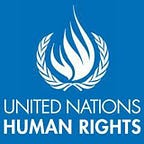Knocking down walls to live independently
Matthieu Chatelin has surmounted countless hurdles to live independently and be included in the communities where he has lived.
Matthieu Chatelin was a premature baby. He was born at only 25 weeks, an early arrival that left him with cerebral palsy, a motor disorder which makes him dependent on the support of others to eat, drink, bathe, use the restroom and participate in many social activities.
“If my arm or my leg fall off the chair I need someone to put them back on,” Chatelin says with a tinge of humour.
Chatelin attended primary school in the conventional French education system; he believes he was one of the first pupils in the system with a severe form of cerebral palsy. Chatelin’s learning journey was not without obstacles: he had to change primary schools 26 times before he was finally fully enrolled.
Later, when he wanted to study law, none of the French universities in Paris, where he lived at the time, accepted to enrol him. The main reason: he did not have a full-time learning support assistant. The universities were concerned that fellow students would offer to assist him and that the State would become liable in case of an injury during the students’ care.
“My way out was the American University in Paris, where the Americans with Disabilities Act could be enforced, in particular its anti-discrimination clause,” he recalls.
“For several years, fellow students, professors and university personnel volunteered to help me.”
Things became even more complicated for Chatelin when he decided to study abroad for a semester — as thousands of European students do every year. A few years after he moved to London, he lost his French social security benefits and received little to no aid in the United Kingdom. Despite this setback, Chatelin completed two Master’s degrees.
Now 30, Chatelin is back in France and has started a new chapter. He is establishing himself in Montpellier to live in his own apartment. In April 2018, he was granted 24-hour support to live independently by the Maison départementale des personnes handicapées, the local disability authority in Montpellier.
“Usually people who need 24 hour assistance are sent to live in institutions. It is excellent that, as evidenced by my case, this policy may perhaps be starting to change,” Chatelin points out.
At least 200,000 French adults and 100,000 children with disabilities live in residential institutions in France and another 6,500 in neighbouring Belgium.
At the end of her official visit to France in October 2017, the UN experton the rights of persons with disabilities, Catalina Devandas, had urged France to end segregation of persons with disabilities and to progressively close all existing institutions.
Under the UN Convention on the Rights of Persons with Disabilities, institutionalization is illegal: the convention provides for the right to live independently, with dignity, autonomy and independence; to be fully included in the community; and to enjoy the freedom of movement.
To achieve independent living, people with disabilities should be provided all necessary means to exercise choice and control over their lives, and to make all decisions concerning their lives, including not being imposed certain living arrangements.
For the first time, in 2017, the European Court of Human Rights ordered that a person be deinstitutionalized and provided with support to live independently in the community.
Promoting the Rights of Persons with Disabilities, both at the levels of the European Union and its Member States, has been a priority of the UN Human Rights Regional Office for Europe since its establishment in 2009.
An important part of that Office’s work revolves around the right to live independently and to be included in the community. The Office also works to ensure that EU Structural and Investment Funds are used to transition from institutional to community-based care, and not to build or renovate institutions.
“Institutionalisation is a form of segregation and social exclusion which, sadly, affects many persons with disabilities, children and older persons across Europe”, says Birgit Van Hout, Regional Representative for Europe of the UN Human Rights Office. “Matthieu Chatelin’s struggle and ultimately his victory set a precedent for others who want to live independently.”
Chatelin recently joined the UN Human Rights Regional Office for Europe as an Online UN Volunteer. He is also a member of the Youth Committee of the European Disability Forum. He hopes to collaborate with the UN rights system and the French authorities to advance the rights of people with disabilities in his country and beyond.
